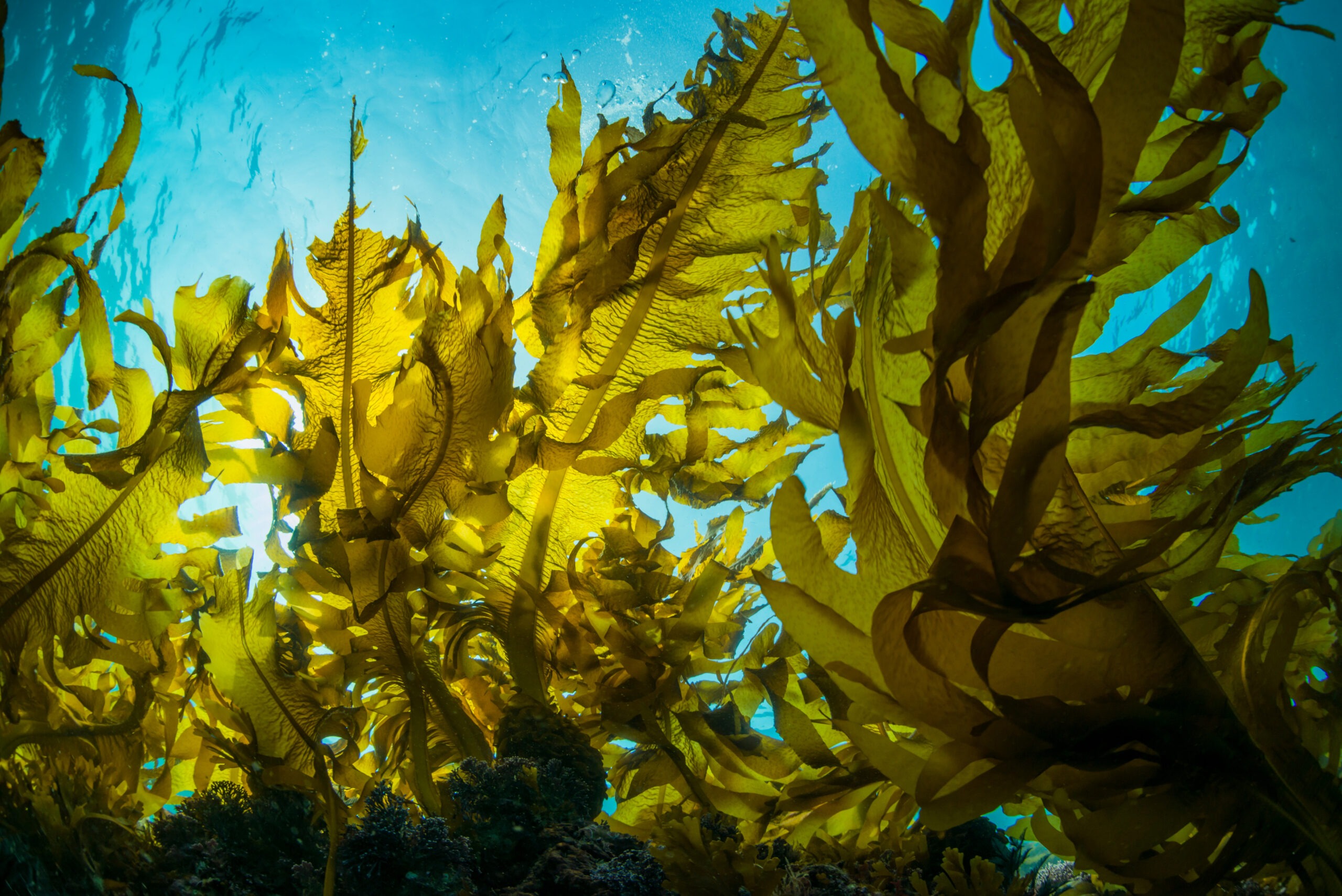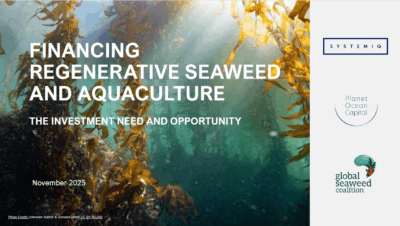The paper sets out why these sectors matter for climate and food security, the barriers holding them back, and how tailored finance can accelerate a regenerative ocean economy.
A critical moment for the ocean and regenerative aquaculture
The ocean underpins human health, prosperity and climate stability. Yet today it faces mounting threats, from overexploitation and pollution to habitat loss and the growing impacts of climate change. Shifting from a traditional, extractive ocean economy to a regenerative one is no longer optional; it is essential for safeguarding ecosystems, supporting livelihoods and ensuring long-term resilience.
Seaweed and bivalve aquaculture stand out as sectors that can deliver this shift. They require no freshwater, fertiliser or land-clearing, and can actively enhance marine ecosystems. They also provide low-carbon protein and raw materials for products ranging from food and feed to bioplastics and pharmaceuticals. With global seaweed production tripling since 2000 and ambitious forecasts reaching US$313 billion by 2040 there is clear momentum. Europe, though still in the early stages of development, has a growing market opportunity worth billions this decade.
Strong growth and demand, but limited access to finance
Europe already has a vibrant innovation pipeline. Around 480 seaweed companies operate across the region, growing at over 15% each year. New farming systems, advanced processing and integrated biorefinery models are expanding the sector’s potential. Bivalves, meanwhile, form one of Europe’s most established aquaculture industries, worth €1.3 billion, employing 38,000 people and producing nearly half of all EU aquaculture volume.
But despite strong fundamentals, both sectors face a major financing challenge.
Within the next five years, seaweed and bivalve producers will require an estimated €1.7 billion in debt finance to expand, modernise and adapt to climate impacts. Yet commercial lending remains limited, constrained by:
- lender unfamiliarity with the industries
- low collateral value of equipment
- seasonal cashflows and scarce offtake agreements
- impact funds that are heavily skewed toward equity rather than debt
These barriers leave promising businesses without the capital they need to grow.
Financing solutions that work for nature-positive growth
In this paper, Systemiq has developed a clear blueprint for a new generation of financing mechanisms tailored to the needs of regenerative ocean industries.
The whitepaper draws on insights from industry leaders, fund managers and producers, and builds on the 2025 Unlocking the Potential of Europe’s Seaweed and Bivalve Industries report commissioned by the European Investment Bank.
Our analysis identifies how blended finance models, with flexible, well-designed debt instruments at their core, can unlock investment for SMEs and start-ups in both sectors. These solutions can be structured to:
- align with sector-specific cashflows
- reduce complexity and improve accessibility for borrowers
- integrate technical assistance to strengthen project pipelines
- embed robust impact metrics and inclusive stakeholder engagement
- address the underlying market failures preventing capital from flowing today
Why this matters – and what happens next
Scaling seaweed and bivalve aquaculture could deliver meaningful benefits for climate, biodiversity, coastal communities and sustainable food systems. By creating financing vehicles that fit the realities of these sectors, Europe can accelerate job creation, improve ocean resilience and strengthen long-term economic and environmental outcomes.
The whitepaper offers the first step toward building such solutions. It creates the foundation for convening investors, producers, public institutions and impact-driven funders to design and launch practical financing instruments that can be deployed across Europe.
This is a critical window to turn momentum into impact. With fit-for-purpose finance, seaweed and bivalves can become cornerstone industries of a regenerative ocean economy, delivering healthier ecosystems, sustainable growth and meaningful climate action.


